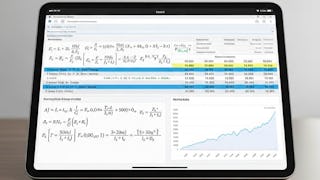By the end of this course, learners will be able to analyze the foundations of the Dodd-Frank Act, evaluate its impact on financial markets, and apply key reforms in governance, transparency, and risk management. They will gain the ability to interpret the Volcker Rule, assess derivatives regulation, examine securitization reforms, and appraise executive compensation practices.



What you'll learn
Analyze foundations and market impact of the Dodd-Frank Act.
Interpret the Volcker Rule, derivatives, and securitization reforms.
Evaluate governance, risk, and executive compensation practices.
Skills you'll gain
Details to know

Add to your LinkedIn profile
11 assignments
September 2025
See how employees at top companies are mastering in-demand skills

There are 3 modules in this course
This module introduces learners to the origins and core regulatory frameworks of the Dodd-Frank Act. It explores the Act’s background, the implications of the Volcker Rule, and oversight mechanisms for swaps and derivatives. By the end, learners will understand the foundational elements that shaped U.S. financial reform and improved transparency in complex markets.
What's included
9 videos4 assignments1 plugin
This module examines how the Dodd-Frank Act addressed securitization, credit rating agencies, and capital requirements to restore financial stability. Learners will explore the Act’s emphasis on accountability, enhanced disclosure, and reduced taxpayer exposure to bailouts, ensuring a safer and more transparent marketplace.
What's included
8 videos4 assignments
This module focuses on corporate governance reforms, hedge fund oversight, and executive compensation under Dodd-Frank. Learners will study how these measures improved accountability, aligned executive incentives with shareholder interests, and enhanced investor confidence in financial institutions.
What's included
5 videos3 assignments
Why people choose Coursera for their career










